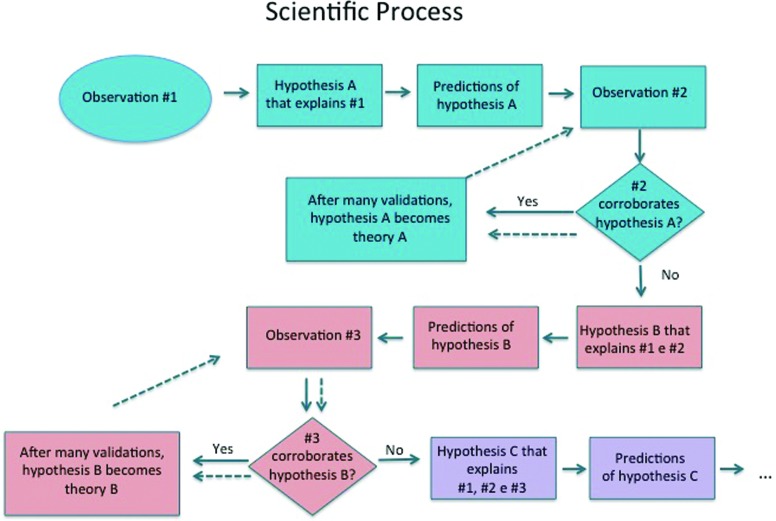歷史上,宗教利用超自然研究穩固勢力,並勾結君王,對科學家進行嚴厲的打壓和嚴懲,包括燒死大量對科學有重大貢獻的科學家。天主教和最初期的基督新教,在這方面特別嚴重,常判科學家死刑。
Guest from 124.244.37.x 發表於 2025/2/18 11:43

歷史上,宗教利用超自然研究穩固勢力,並勾結君王,對科學家進行嚴厲的打壓和嚴懲,包括燒死大量對科學有重大貢獻的科學家。天主教和最初期的基督新教,在這方面特別嚴重,常判科學家死刑。
Guest from 124.244.37.x 發表於 2025/2/18 11:43
It's important to understand that the application of evolutionary principles to complex human social structures is a very nuanced and often debated area. While evolutionary biology can offer insights into the origins of certain social behaviors, it doesn't fully explain the intricate details of how societies are structured today. Many factors beyond purely biological evolution play a crucial role, including culture, history, technology, and individual choice.
That being said, some aspects of human social structure are harder to fully explain through a purely evolutionary lens, particularly when those aspects seem to contradict what might be expected from simple natural selection:
Large-scale cooperation among unrelated individuals: While kin selection (favoring relatives) and reciprocal altruism (expecting payback) explain some cooperation, humans often cooperate in very large groups with people they are not related to and may never interact with again. Explaining the evolution of this level of cooperation is complex and involves factors like cultural evolution, group selection (a controversial idea), and reputation.
Highly variable mating systems: Humans exhibit a wide range of mating systems, from monogamy to polygyny to polyandry, and these can vary significantly across cultures. While evolutionary explanations exist for some mating preferences, the sheer diversity and fluidity of human mating systems are not easily reduced to simple biological imperatives.
Complex social hierarchies: While dominance hierarchies exist in some animal species, human social hierarchies are far more complex and involve factors like wealth, power, status, and ideology. Evolutionary psychology can offer some insights into the psychological underpinnings of status-seeking behavior, but it doesn't fully explain the specific forms that social hierarchies take in different societies.
Rapid cultural evolution: Human cultures evolve much faster than biological evolution. Technological advancements, social norms, and belief systems can change dramatically within a few generations, far outpacing the pace of genetic change. This rapid cultural evolution can lead to social structures that are not easily explained by slow biological evolution.
Altruism towards strangers: While some altruism can be explained by kin selection or reciprocity, humans sometimes show altruism towards complete strangers, even at a cost to themselves. Explaining this type of behavior is challenging from a purely evolutionary perspective and may involve factors like empathy, moral reasoning, and cultural norms.
It's crucial to avoid what's called the "naturalistic fallacy" – the idea that what is natural is necessarily good or justifiable. Just because a behavior might have an evolutionary basis doesn't mean it's morally right or that we should necessarily perpetuate it. Human societies are shaped by a complex interplay of biology, culture, and individual agency, and we have the capacity to make choices that go beyond our evolutionary predispositions.
In conclusion, while evolutionary principles can provide valuable insights into the origins of some human social behaviors, they don't fully explain the complexity and diversity of human social structures. Many other factors, including culture, history, technology, and individual choice, play a crucial role in shaping how societies are organized.


本人已指出,刀為物理存在,而標準只為原則屬於概念,抽兄尚自勸在下"所以,你要看「刀 - 聖經」類比兩者的相似之處,而非看相異之處。"。卻在十年以先曉在下以上述(類比不正確,因為聖經是真理,不是世俗的法律。)道理,不認為同樣作為條例的二物可作相比。
這個本人希望抽兄三思,避免因需逞口舌之爭之快,而忽略真理探索之重要。
jimmychauck 發表於 2023/7/3 20:58
貼完又縮又話唔主張,同你貼果個大於十項嘅亂槍打鳥SAB嘅反應冇分別,你嘅表現都好persistent。
....
定係其實,你都講左唔主張該論文中嘅意見,我係咪可以當你冇講過?
咁隨隨便便就貼啲自己substantiate唔到嘅野出黎,同某啲人喺討論區灌水嘅行為又係咪真係好大分別?
jimmychauck 發表於 2025/2/21 13:02
| 歡迎光臨 離教者之家 (https://exchristian.hk/forum/) | Powered by Discuz! 7.2 |